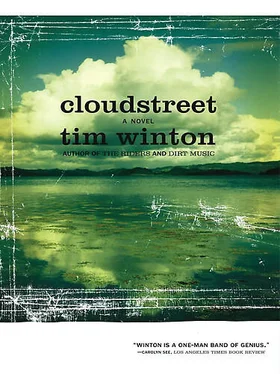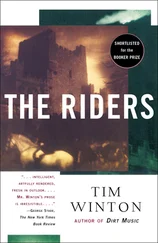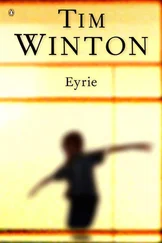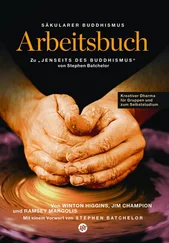Rose didn’t mind the sight of food these days, and she managed to cook for the family without trouble. But whenever she ate more than a few mouthfuls she vomited it straight back again, just like she knew she would. She cooked at six, regardless of who was there, and if no one came she left it on the table till morning, taking a carrot for herself and going upstairs to her homework or to lie on her bed planning ways of escape.
She didn’t go to collect the old woman from the pub any more. She’d stopped that a couple of years ago, when she was fourteen. No more sending messages through to the Ladies’ Lounge, never again the screaming and slapping out on the pavement, the leery beerwet grins of old men turning on their stools, the hands on her backside, the food thrown in her face. The night of her fourteenth birthday Rose went down to the Railway Hotel to collect her mother for the little party they’d arranged, and when she got to the nicotine sheened door, she just stopped and turned around and went home, knowing she didn’t care if the old girl came to her party or if she went to hell in a hurry.
Rose learnt to cook, wash the laundry and to clean the house. If the old man won at the races she didn’t have to mend her tights on the trolley bus to school — she’d wear perfect new ones — but in three years of high school there weren’t a dozen times she went with tights that didn’t need darning.
She poured every bottle of liquor she ever found in the house down the sink and she knew it was worth getting thumped for. She didn’t do it to curb the old girl’s drinking — she did it in glee, out of spite. It gave her the most marvellous, tingly feeling to see it going down the gurgler. If the boys and her father were home in time for dinner they’d often have Dolly lurching in the door for a scene, though more often than not the four of them would hear her coming, sweep up their plates and rush upstairs to eat in their rooms. If she still had the legs, Dolly might seek them out, bash at doors, and turn a meal over in someone’s lap, but mostly she’d get no further than the kitchen where she’d sit staring at whatever was available to be stared at until she fell asleep, mumbling.
Now and then Rose tried to see the whole business as hilarious; it was like being in the first chapter of a fairy tale about a sweet girl with a nasty but beautiful step-mother. But the pleasure wouldn’t stay with her more than a moment or two. There was too much shame, too much cowering under the neighbours’ eyes, too much agonizing embarrassment going to school with a black eye or a fat lip — no, it was too real.
Ted and Chub were lazy and careless like boys were, and they were no use at all. Ted was the old girl’s favourite. Rose often saw her patting and stroking him when she was half shickered. Ted didn’t seem to care what she did at all. And the old man — well the old man was the same as ever. He’d come home tired and quiet from the Mint and shrug his shoulders. On Saturdays he’d go out to Ascot and lose the week’s pay. Rose was clever enough to steal a bit of his pay each week, going through his shirts for the laundry, but it was never really enough. She bought groceries from next door and small household things in Subiaco, but the money never went far enough to buy the boys and her new things for school, or clothes, or small treats. If the old man had a win there’d be plenty for all, but mostly it was the bookies who had the wins.
This summer Rose had started to get thin. She went dark in the sun, and on the holidays she’d caught the train to Cottesloe Beach nearly every day and gone without lunch to pay for it. She looked light and lithe and the old man joked around about it.
One Sunday noon in the new year and the fresh decade when the summer days were cooling off toward autumn, the old girl surprised her in the bathroom and she had to grab for a towel to cover herself. Her mother was bleary and sore headed.
Yer gettin skinny. Look like a bloody skeleton. I hate it. People think we starve yer.
Rose said nothing. It pleased her somehow to know that it annoyed the old girl. She watched her smear on all the makeup she needed these days to look halfway decent. Dolly was getting old and puffy. Smoke was curing her brow and cheeks and she had to try very hard to look her best.
Their eyes met and Rose smiled menacingly before leaving the room.
From then on, Rose got thinner every day. The old woman went into rages and the old man bit his lip. She was sixteen and scaring herself.
 A Desertion
A Desertion 
At first Oriel Lamb thought that vaudeville was undignified. Since way back, since the Bible-believing days, she’d defended dancing and music, but getting up to make a fool of yourself and sing nonsense songs seemed morally dubious. It was hard to shake off the idea that Lester’s vaudeville act would somehow bring disgrace to them all. But when she saw how the old diggers loved it, how they stomped their crutches and held their bellies and sang along, she couldn’t see the harm in it.
It was hard to remember how he’d got into the whole business. Someone from the army band had been recruiting, or drunk, and suddenly Lester was up there on stage, one Saturday night, starting in on his noseflute before they’d even finished ‘God Save the Queen’. And now it was 1950, and the Anzac Club had Lester Lamb on the bill almost every Saturday night. Though she’d never let on, she was proud of him. Vaudeville was something he was good at, something legendary from his past that was actually true. Most Saturday nights she’d hear him from the club kitchen where she kept the urns boiling for tea and buttered pumpkin scones and set fresh Anzacs out on the club china. She could hear Lester on the Jew’s harp, comb and paper, the noseflute, and nowadays the ventriloquist’s dummy he’d bought in a pawnshop for a mysterious sum.
He’s a right card, the other women would say, a real bonzer.
A real dag, love. Oh, to have him round the house.
Oriel rolled her eyes. Women!
People knew the Lambs now, were a little afraid of them even. With or without the children they travelled to and from the club in a Harley and sidecar. Pedestrians always looked twice at the dummy whose jaws flapped alarmingly in the wind.
The Anzacs were what the Lambs believed in, the glorious memories of manhood and courage. The nation, that’s what kept the Lambs going. They were patriots like no others. The thought of World Communism put fear in their hearts. Oriel had dreams about Joe Stalin — she knew what he was about. They weren’t political, Lester and Oriel, but they were proud and they offered themselves to the nation.
It was at the Anzac Club one night that Quick came into the kitchen and told her he was leaving.
Go over to the sink and wash your mouth out with soap, Mason Lamb, she said, not pausing from kneading the oatmeal mixture for her next batch of Anzacs.
Quick leaned against the laminex counter and saw the gold flecks in it.
I’m going bush, Mum.
There’s a bar of Velvet just beside you.
I didn’t think you’d appreciate me doin a bunk and not explainin.
Up on stage, Lester was singing:
Chicory-chic chala-chala-
You’ve got no money.
Mum—
No trade.
— in a binanaker bollicka wollicka, can’t you see—
Mum—
We not good enough for you?
— chicory-chic is me!
I’m going.
Everyone was laughing and clapping, and now they were headed for the counter for tea and cakes. Oriel rushed to the urn and felt the steam in her face. She wanted to grab Quick now, swallow him in a hug and pin him to the floor. He couldn’t go, he was one of hers, he wasn’t old enough, he wasn’t ready. Men with broad-cracking grins and hat lines in the oil of their hair broached the counter and made clunky, well-meaning jokes to hurry her along. She was trapped.
Читать дальше

 A Desertion
A Desertion 










